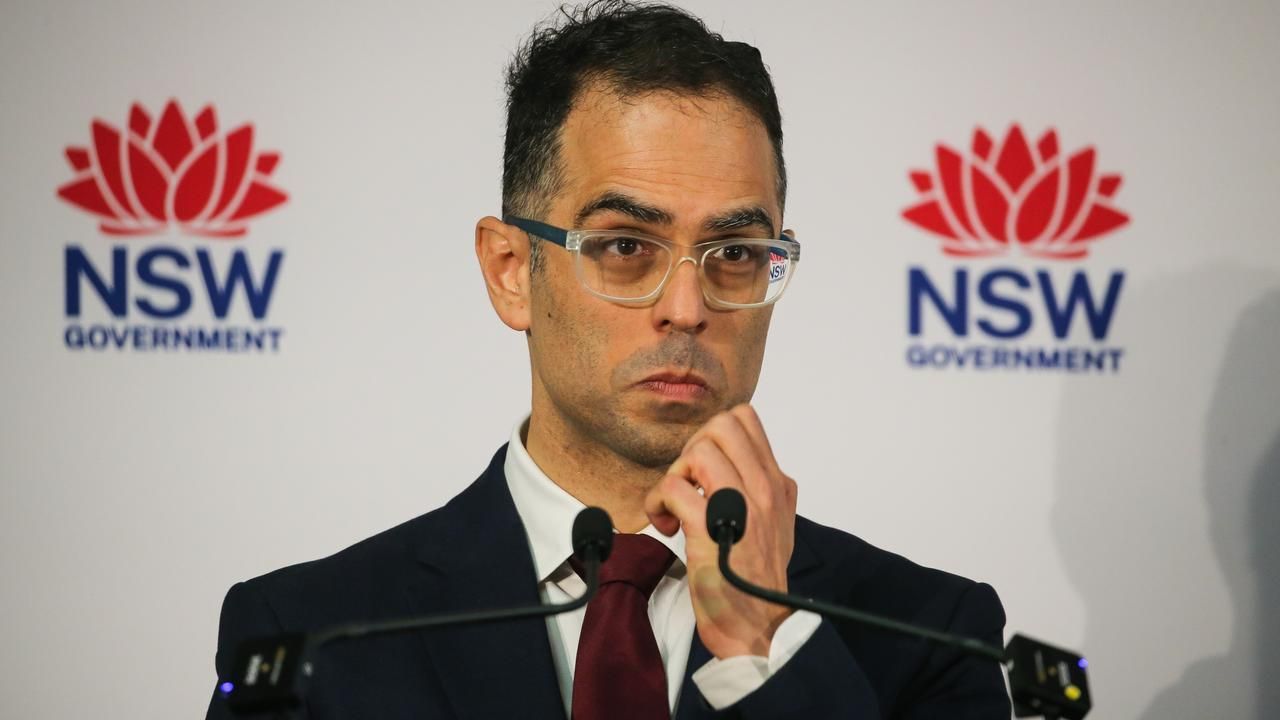Top 10 Benefits of Choosing Short-Term Rentals Over Hotels
Leo Wei • July 18, 2024
When planning your next trip, whether for business or leisure, accommodation is a key consideration. While hotels have been the traditional choice for travelers, short-term rentals are increasingly becoming a popular alternative. Here are the top 10 benefits of choosing short-term rentals over hotels:

1. More Space for Comfort
One of the most significant advantages of short-term rentals is the additional space they offer. Unlike hotel rooms, which can feel cramped, short-term rentals provide multiple rooms, including separate living and sleeping areas, offering you and your companions more space to spread out and relax.
<img src="https://tracker.metricool.com/c3po.jpg?hash=f34989a47dd424decaad47faf893034f"/>
2. Cost-Effective for Longer Stays
For extended stays, short-term rentals can be more cost-effective than hotels. With options to book for weeks or even months, you can often secure a lower nightly rate, making it a more affordable choice for long-term trips.
3. Home-Like Amenities
Short-term rentals come equipped with home-like amenities that hotels often lack. Enjoy fully furnished kitchens, laundry facilities, and private outdoor spaces. These conveniences can make your stay more comfortable and allow you to live like a local.
4. Privacy and Exclusivity
Privacy is a key benefit of short-term rentals. Unlike hotels, where you share common areas with other guests, short-term rentals offer private entrances and exclusive use of the property. This is ideal for travelers seeking a more secluded and personal experience.
5. Flexibility in Location
Short-term rentals are available in a variety of locations, from bustling city centers to quiet suburban neighborhoods. This flexibility allows you to choose a location that best suits your travel needs, whether you want to be close to attractions, business centers, or enjoy a more residential setting.
6. Unique and Personalized Experiences
Each short-term rental is unique, offering a personalized experience that hotels often can't match. From charming historic homes to modern city apartments, you can choose a property that reflects your style and preferences, enhancing your overall travel experience.
7. Ideal for Groups and Families
Traveling with a group or family? Short-term rentals are perfect for accommodating multiple guests. With several bedrooms and larger living spaces, everyone can stay together under one roof, making it easier to enjoy your time together.
8. Local Living Experience
Short-term rentals allow you to immerse yourself in the local culture and experience the destination like a resident. Shop at local markets, cook your meals, and explore neighborhoods off the beaten path, gaining a deeper connection to the place you're visiting.
9. Pet-Friendly Options
For pet owners, finding pet-friendly accommodation can be a challenge. Many short-term rentals welcome pets, providing a comfortable and convenient option for traveling with your furry friends without the restrictions often imposed by hotels.
10. Enhanced Privacy and Safety
In the current climate, privacy and safety are more important than ever. Short-term rentals offer a private, controlled environment, reducing the number of interactions with others and providing a safer alternative to crowded hotel settings.
Choosing a short-term rental over a hotel can significantly enhance your travel experience. With more space, home-like amenities, and a personalized touch, short-term rentals provide a comfortable and cost-effective alternative for all types of travelers. Whether you're planning a family vacation, a business trip, or a solo getaway, consider MetaWise Property's short-term rentals for your next stay in Sydney. Book now to enjoy the many benefits of staying in a home away from home.
Ready to experience the comfort and convenience of a short-term rental? Explore our properties and book your stay with MetaWise Property today!
Share to social media
More posts

As a property owner in the short-term rental (STR) industry, safeguarding your investments and ensuring financial transparency are crucial for long-term success. Utilizing a robust trust accounting system is not just about compliance; it's about building trust and securing your financial future. Here's why trust accounting compliance matters to you and how it can enhance the management of your property portfolio. Why Trust Accounting is Important for Property Owners Protection of Funds: Trust accounts ensure that your funds are kept separate from the operational accounts of property managers. This segregation of funds provides a layer of protection, ensuring that your money is not used for other purposes. You can rest assured that your investment is secure. Regulatory Compliance: Using a trust account demonstrates a commitment to regulatory compliance. This reassures you that your funds are being managed according to the law, which is especially important in jurisdictions with strict trust account regulations. Accurate Financial Reporting: Trust accounting systems provide detailed and accurate financial reports, helping you to track income, expenses, and overall financial performance of your properties. This level of detail is essential for effective financial planning and decision-making. Building Trust: By using trust accounts, property managers can build trust with you, showing that they are responsible and trustworthy stewards of your funds. This trust is vital for long-term business relationships and can lead to increased confidence and peace of mind. Key Features of Advanced Trust Accounting Systems Comprehensive Compliance: Advanced trust accounting systems are designed to meet trust accounting laws and regulations of multiple regions, ensuring your investments are managed within legal frameworks. Detailed Reporting: You will receive detailed financial reports, including end-of-month summaries, pie charts, and transaction details. This makes it easier to understand your financial status and make informed decisions. Seamless Integration: These systems integrate with Property Management Systems (PMS), ensuring that all booking-related financial data is automatically updated. This enhances efficiency and accuracy. Mobile-Friendly Access: Access your financial data and reports from your mobile device, providing convenience and real-time updates wherever you are. Enhanced Security: High-level encryption and data replication ensure the security and integrity of your financial data, protecting against breaches and data loss. Benefits for Property Owners Adopting an advanced trust accounting system brings several benefits: Peace of Mind: Knowing that your funds are managed separately and securely provides peace of mind, allowing you to focus on other aspects of your investments. Transparency and Trust: Detailed and transparent reporting fosters a trusting relationship with your property manager, ensuring you are always informed about your financial status. Efficiency: Automation of financial processes and seamless integration with PMS saves time and reduces manual errors, ensuring your property management is efficient and reliable. Scalability: As your property portfolio grows, advanced trust accounting systems can handle increasing volumes of data and transactions, ensuring compliance and efficiency are maintained. By leveraging an advanced trust accounting system, you can ensure regulatory compliance and build a robust framework of trust and reliability for your property investments. This strategic move will position you as a savvy investor, known for integrity and excellence in property management. This approach not only secures your current investments but also enhances your potential to attract more property opportunities and grow your portfolio in the competitive STR industry.

NSW Budget 2024-2025: Implications for the Real Estate Industry The NSW Budget for 2024-2025, presented by Treasurer Daniel Mookhey, outlines several initiatives and allocations that will significantly impact the real estate industry. From housing development to infrastructure investment, here’s a detailed look at what this budget means for real estate professionals, investors, and tenants, with a focus on rental markets, both short-term and long-term. Housing and Infrastructure Investment Housing and Infrastructure Plan ($2.2 billion): • The budget includes a substantial $2.2 billion Housing and Infrastructure Plan aimed at addressing housing shortages and supporting community infrastructure. This plan will help facilitate new housing developments, easing the pressure on housing supply and potentially stabilizing property prices . Impact on Real Estate Development: • Developers can expect increased opportunities with government-backed projects. The emphasis on infrastructure supports the growth of new communities and the expansion of existing ones, making real estate development more lucrative in the near term. Rental Market Long-Term Rentals: • Increased Housing Supply: The Housing and Infrastructure Plan is likely to boost the availability of rental properties, which may help moderate rental prices in the long term. An increase in housing stock can alleviate some of the current high demand, especially in urban areas. • Cost of Living Relief: Measures aimed at cost-of-living relief, such as subsidies and support for essential services, can increase disposable income for renters, potentially influencing rental affordability and stability . Short-Term Rentals: • Tourism and Infrastructure: With significant investments in transport and infrastructure ($72.3 billion), regions popular with tourists might see a surge in short-term rental demand. Enhanced transport facilities make previously less accessible areas more attractive for short-term stays . • Regulatory Environment: The budget does not specifically address short-term rental regulations, but the overall boost in infrastructure and housing supply can indirectly impact this segment. More housing options might balance the market dynamics, reducing the strain on both short-term and long-term rental supplies. Economic and Fiscal Policies Budget Repair and Fiscal Management: • The budget’s focus on fiscal responsibility and reducing debt is crucial. Lower debt levels and improved fiscal health can lead to a more stable economic environment, fostering investor confidence in the real estate market  . • Increased Coal Royalties: The increase in coal royalties and other fiscal measures can impact regions dependent on mining and resources. This might influence property values and rental demand in such areas. Health and Education Infrastructure Healthcare Investment ($13.8 billion): • Significant investment in healthcare facilities will make areas with new or upgraded hospitals more attractive for families and retirees, potentially increasing property values and rental demand in those locales . Education Facilities ($9.8 billion): • Upgrading schools and TAFE campuses can enhance the desirability of neighborhoods, impacting both property values and rental markets. Proximity to quality education institutions is a major consideration for families and can drive demand for housing in these areas . Conclusion The NSW Budget for 2024-2025 presents a mixed bag for the real estate industry. While the emphasis on infrastructure and housing supply is promising, the impacts on rental markets will vary between short-term and long-term effects. Increased housing stock may stabilize long-term rental prices, while improvements in transport and infrastructure can boost the attractiveness of short-term rentals. Overall, the budget supports a more stable and potentially prosperous environment for real estate development and investment. For more detailed analysis and ongoing updates, real estate professionals and investors should monitor the implementation of these budget measures and their impacts on the market dynamics. References: • NSW Budget 2024-25 Overview. Retrieved from NSW Government Budget Papers • A Fresh Start for NSW. NSW Government Media Release, 19 September 2023. Retrieved from NSW Government • NSW Treasury. Pre-Budget Submissions for 2024-25. Retrieved from NSW Treasury

Short-term rentals (STRs), popularised by platforms like Airbnb and Vrbo, have revolutionised the accommodation industry worldwide. However, this transformation has also sparked significant policy debates and regulatory challenges. In Australia, the debate over STR regulations continues to evolve, reflecting broader global trends. This blog post explores the current state of STR regulations in Australia, including the latest 2024 updates, compares them with global standards, and discusses the pros and cons of various approaches. More importantly, we'll highlight how MetaWiseBNB can help you navigate these complexities and maximize your rental income. Short-Term Rental Regulations in Australia Current Landscape In Australia, STR regulations vary significantly across states and municipalities. Here are some key points, including new and proposed regulations for 2024: New South Wales (NSW): Current: NSW has a mandatory Code of Conduct for STR operators, which includes requirements for noise control, neighbourhood respect, and guest behavior. Hosts in Sydney can rent out their homes for up to 180 nights per year if they are not present. 2024 Update: Proposed regulations aim to reduce the rental cap from 180 to 120 nights per year in certain high-demand areas to address housing shortages and community concerns. Victoria: Current: STRs are subject to local council regulations, and changes to the Owners Corporations Act allow owners’ corporations to adopt rules limiting or prohibiting STRs in apartment buildings. 2024 Update: New regulations include a registration requirement for all STR properties, an annual fee, and stricter enforcement of noise and safety standards. Queensland: Current: STR regulations are managed by local councils, with varying rules regarding the number of allowable rental nights and host responsibilities. 2024 Update: Proposed statewide regulations include a cap of 90 rental nights per year for non-owner-occupied properties and mandatory registration for all STRs. Western Australia (WA): Current: WA has less stringent regulations, but local councils have the authority to impose their own rules regarding STR operations. 2024 Update: New proposals include a mandatory Code of Conduct, similar to NSW, and a cap on rental nights in major cities to manage the impact on housing affordability. Pros and Cons of Australian Regulations Pros: Community Protection: The regulations help protect local communities from the potential negative impacts of STRs, such as noise, congestion, and changes in neighbourhood character. Market Balance: Limits on rental nights can help balance the housing market by preventing the conversion of long-term rentals into STRs, which can exacerbate housing shortages. Safety and Standards: Mandatory Codes of Conduct and local regulations ensure safety standards and quality control, benefiting both guests and hosts. Cons: Complexity and Inconsistency: The varying regulations across states and councils create a complex and inconsistent regulatory environment for hosts, making it difficult to navigate and comply. Economic Impact: Restrictive regulations can reduce the income potential for property owners and limit the availability of affordable accommodation options for travelers. Administrative Burden: Compliance with multiple layers of regulations can be burdensome and costly for hosts, particularly those managing multiple properties. Global Comparison: Pros and Cons United States New York City: STRs are heavily regulated, with hosts required to be present during the stay and rentals limited to fewer than 30 days. Pros: Reduces the impact on housing affordability and ensures safety and compliance. Cons: Limits the ability of hosts to earn income and reduces accommodation options for visitors. San Francisco: Hosts must register with the city and are limited to renting out their homes for a maximum of 90 days per year if they are not present. Pros: Encourages responsible hosting and protects housing stock. Cons: Can be seen as overly restrictive and limit the potential economic benefits of STRs. European Union Amsterdam: STRs are limited to a maximum of 30 nights per year, and hosts must register with the city. Pros: Helps maintain housing availability and neighbourhood quality. Cons: Severely restricts the economic potential for hosts. Paris: Hosts can rent out their properties for up to 120 days per year, and registration is mandatory. Pros: Balances tourism demand with housing needs and ensures regulatory compliance. Cons: Still limits earning potential and can be challenging for hosts to manage. Asia-Pacific Japan: The Minpaku Law requires hosts to register with local authorities, limits rental days to 180 per year, and imposes strict health and safety standards. Pros: Ensures safety and quality while balancing tourism with residential needs. Cons: The stringent registration process and limits can deter potential hosts. Singapore: STRs of less than three months are generally prohibited, with strict enforcement. Pros: Protects long-term housing availability and community standards. Cons: Eliminates STR opportunities for hosts, reducing income potential and accommodation diversity. How MetaWiseBNB Can Help Navigating the ever-changing landscape of STR regulations can be daunting, but that's where MetaWiseBNB excels. Our comprehensive services are designed to help you maximize your rental income while ensuring compliance with all relevant regulations. Regulatory Expertise: Our team stays up-to-date with the latest regulations and proposed changes, providing you with expert advice and ensuring your properties remain compliant. Property Management: From guest communication and check-ins to cleaning and maintenance, we handle all aspects of property management, allowing you to focus on maximising your income. Marketing and Optimisation: Our marketing strategies and dynamic pricing tools help attract more bookings and optimize your rental rates, ensuring you achieve the highest possible return on your investment. Compliance Support: We assist with property registration, adherence to local Codes of Conduct, and navigating any legal challenges, providing peace of mind and reducing administrative burdens. The Path Forward for Australia As Australia continues to navigate the complexities of STR regulations, finding a balanced approach is crucial. Here are some considerations for policymakers: Harmonisation: Streamlining regulations across states and councils can reduce complexity and make compliance easier for hosts. Flexibility: Introducing flexible regulations that adapt to local market conditions and community needs can help balance the interests of all stakeholders. Stakeholder Engagement: Involving hosts, guests, community members, and industry stakeholders in the regulatory process can lead to more effective and accepted policies. Technology Integration: Leveraging technology for registration, compliance monitoring, and enforcement can improve efficiency and reduce administrative burdens. The debate over short-term rental regulations is multifaceted, involving economic, social, and community considerations. By examining both the Australian context and global approaches, policymakers can learn from various regulatory frameworks to craft balanced, effective, and fair regulations. At MetaWiseBNB, we are committed to helping property owners navigate these complexities, providing expert guidance and support in managing both short-term and long-term rentals. Contact us today to learn how we can assist you in maximising your property's potential while staying compliant with regulations.
